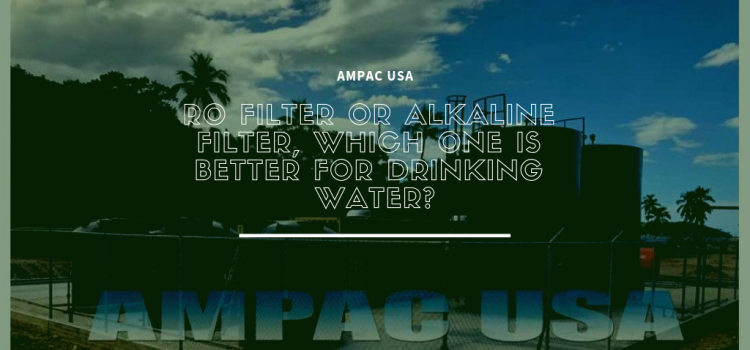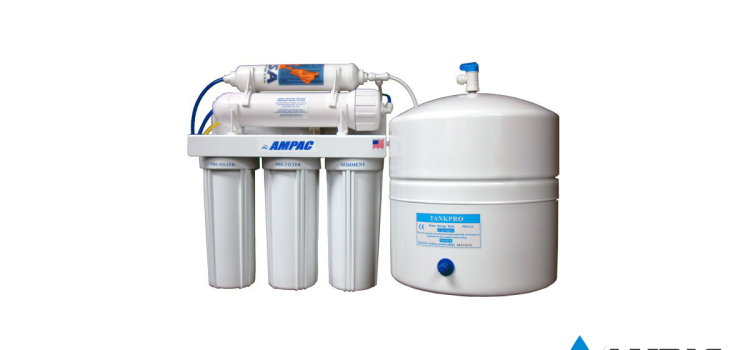Last updated on June 7th, 2025 at 03:42 pm
In our pursuit of clean, healthy, and safe drinking water, two prominent filtration technologies have emerged as top contenders: the Reverse Osmosis (RO) filter and the Alkaline filter. Both promise improved water quality, but their mechanisms, benefits, and outcomes differ significantly. To help households and businesses make an informed choice, we provide an in-depth comparison between RO and alkaline filtration systems based on purification effectiveness, health impact, maintenance, cost, and real-world performance.
Understanding RO Water Filters: Advanced Purification
Reverse Osmosis (RO) filters use a semipermeable membrane to remove dissolved solids, heavy metals, chemicals, bacteria, and viruses. This process forces water through tiny pores, leaving impurities behind and delivering exceptionally clean, demineralized water.
Key Benefits of RO Filtration
- Removes up to 99% of contaminants including fluoride, arsenic, lead, nitrates, and microplastics.
- Highly effective against TDS (Total Dissolved Solids), making it ideal for areas with hard or contaminated water sources.
- Pre-filters and post-filters in RO systems ensure multi-stage filtration, improving overall water taste and safety.
Health Considerations
While RO filtration removes harmful pollutants, it also eliminates beneficial minerals like calcium, magnesium, and potassium. The resulting water is acidic (pH 5.5–6.5) and might not support long-term mineral intake unless remineralization is added.
What Is an Alkaline Filter? Natural pH Enhancement
Alkaline filters work by adding minerals (such as calcium, potassium, and magnesium) back into the water, thereby increasing its pH to a more alkaline level (typically pH 8.0–9.5). These filters are often used after RO filtration or on their own with basic carbon filters.
Key Benefits of Alkaline Filtration
- Improves pH balance of the water, which some studies suggest helps with acid reflux, hydration, and bone health.
- Reintroduces essential minerals, enhancing taste and nutritional profile.
- Acts as a mild antioxidant, neutralizing free radicals due to negative ORP (Oxidation Reduction Potential).
Health Considerations
Alkaline water offers remineralization benefits, especially after RO treatment. However, alkaline filters alone do not remove contaminants, making them unsuitable as a standalone purification method in polluted water regions.
Purification Effectiveness: RO Wins for Contaminant Removal
When evaluating which filter is better at removing harmful substances, RO filtration is unmatched. It eliminates a broader spectrum of pollutants compared to any other residential system, including:
- Lead, mercury, and arsenic
- Pharmaceutical residues
- Microbial cysts and pathogens
- Chlorine and chloramine
On the other hand, alkaline filters do not purify water in the true sense. They may include a basic carbon stage, but they lack the micro-filtration capacity to remove toxins, pathogens, or dissolved salts.
Verdict: For raw water purification, the RO filter is decisively superior.
Taste and Water Texture: Alkaline Filters Lead
While RO systems deliver ultra-purified water, the taste can be described as flat or bland due to the removal of minerals. Alkaline filters address this by remineralizing the water, producing a crisp, refreshing taste that many users prefer.
Read: The Most Effective Way to Eliminate PFAS and PFOA from Your Drinking Water
Verdict: For taste and mouthfeel, alkaline filters enhance the drinking experience, especially when used in conjunction with RO.
Health Benefits: Alkaline Water Adds Nutritional Value
The alkaline water trend is driven by claims of its anti-aging, detoxifying, and pH-balancing properties. Though scientific consensus is still evolving, mineral-rich alkaline water is believed to offer:
- Better hydration performance for athletes
- Acid neutralization in the digestive system
- Support in reducing oxidative stress
However, RO water alone lacks minerals, which may not suit individuals relying heavily on water as a mineral source.
Verdict: For added nutritional benefits, alkaline filters offer a value-add, particularly when used as a final stage after RO.
Maintenance and Lifespan: RO Requires More Care
RO filters are multi-stage systems requiring membrane and cartridge replacements every 6 to 12 months. Depending on water quality, clogging and fouling can occur, requiring professional servicing.
Alkaline filters, on the other hand, are simpler to maintain, typically requiring only mineral cartridge replacement every 6 to 12 months. They do not have sensitive membranes or complex electronics.
Verdict: In terms of ease of maintenance, alkaline filters are simpler and more cost-effective.
Cost Comparison: Long-Term Investment Analysis
RO Filter Costs
- Initial cost: $200–$600 for home systems
- Annual maintenance: $100–$200
- Water wastage: RO systems typically waste 2–3 gallons for every gallon produced
Alkaline Filter Costs
- Initial cost: $50–$300 (depends on standalone or add-on)
- Annual maintenance: $40–$80
- No water wastage, as no flushing is involved
Verdict: While alkaline systems are cheaper upfront, RO filters justify the cost through superior purification and health protection, especially in polluted regions.
Read: EPA Sets First Federal Limits on Dangerous ‘Forever Chemicals’ in Drinking Water
Combination Systems: The Best of Both Worlds
Many modern water systems now offer RO + Alkaline filtration combinations. These hybrid systems use RO membranes for purification and alkaline cartridges for remineralization, delivering:
- Ultra-clean, mineral-rich, pH-balanced water
- Improved taste and antioxidant benefits
- Optimal hydration and long-term health support
These setups eliminate the trade-off between purity and nutrition, making them ideal for households seeking comprehensive water solutions.
Environmental Impact: Waste vs. Sustainability
RO filters, while thorough, generate wastewater during the filtration process. In areas where water conservation is critical, this can be a downside unless a recovery system is in place.
Alkaline filters, especially gravity-based or direct inline types, are eco-friendlier, producing zero wastewater and no electricity usage.
Verdict: For environmental consciousness, alkaline filters are more sustainable, but RO systems can also be optimized with water-saving technologies.
Which Filter Is Better for Drinking Water? Our Final Analysis
| Feature | RO Filter | Alkaline Filter |
| Contaminant Removal | ✔️ Extensive (99%) | ❌ Minimal |
| Mineral Content | ❌ Removed | ✔️ Added |
| Taste | ❌ Flat | ✔️ Enhanced |
| Water pH | ❌ Acidic | ✔️ Alkaline |
| Cost | Higher | Lower |
| Maintenance | Moderate | Low |
| Environmental Impact | Higher (wastewater) | Lower |
Conclusion: For those who prioritize maximum water safety, RO filters are the best standalone choice. However, for enhanced hydration, pH balance, and better taste, alkaline filters provide essential finishing touches. The most effective and health-conscious solution is to opt for a combined RO + Alkaline filtration system, ensuring both purity and nutritional enrichment.
Read: $3 Billion for Lead Pipe Replacement to Deliver Clean Drinking Water
Recommendation for Households
- If you live in a region with contaminated or hard water, start with a RO system.
- For nutritional value and improved taste, add an alkaline filter as a post-treatment stage.
- Avoid alkaline-only systems in areas with poor water quality—they do not offer adequate purification.
Investing in a dual-stage water system ensures long-term health, safety, and satisfaction.










